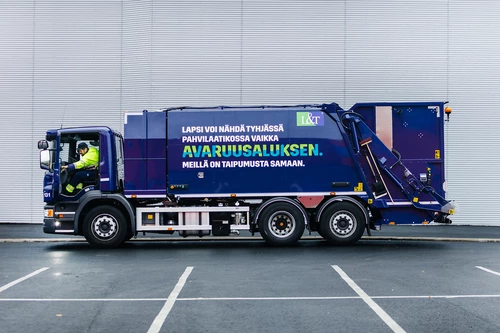
Nordea On Your Mind
Keeping the cash machine lean
Swedish Match has a transparent and consistent approach to capital structure, focused on minimising the cost of capital.
Read moreSivua ei ole saatavilla suomeksi
Pysy sivulla | Siirry aiheeseen liittyvälle suomenkieliselle sivulleGet the latest insights on the economy, industries and emerging trends that can help your business tackle the challenges it faces in today’s market. We share the learnings and perspectives of leading experts and innovators in the Nordics, both from Nordea and beyond.

Nordea On Your Mind
Swedish Match has a transparent and consistent approach to capital structure, focused on minimising the cost of capital.
Read more
Nordea On Your Mind
How does a company's choice of capital structure affect its value? Nordea On Your Mind has analysed the hard data.
Read more
Nordea On Your Mind
Nordea Equity Research analyst Daniel Ovin describes why the online shift in food retail should continue, and how far it could go.
Read more
Nordea On Your Mind
COVID-19 has turbocharged the migration of consumers online. Kinnevik CEO Georgi Ganev discusses the trend in the latest Nordea On Your Mind.
Read more
Nordea On Your Mind
In the latest issue of Nordea On Your Mind, we explore the COVID-19 pandemic's turbocharging effect on e-commerce
Read more
Insights
Ida Wolden Bache, Deputy Governor at Nordes Bank, discusses ongoing testing and ambition for a Norwegian central bank digital currency.
Read more
FX
Environmental services company L&T started using Nordea's AutoFX currency robot mid-pandemic in 2020 to reduce the manual work needed to manage its currency risk. FX automation has been a game changer for the company's treasury department.
Read more
Insights
Are cryptocurrencies likely to become a mainstream payment option, and what can corporates do to prepare? Find out in the new Nordea On Your Mind report.
Read more
Insights
Sustainability in finance is fast becoming the new normal, and sustainability-linked loans continue to gain momentum among Nordic corporates. This year, the trend has taken off in Denmark, according to speakers at the Cash & Treasury Management 2021 conference in Copenhagen.
Read more
Corporate insights
A report by the Mobey Forum’s AI & Data Privacy Expert Group suggests there is a blind spot in the banking industry regarding the importance of emerging privacy enhancing technologies (PETs) in privacy risk mitigation and business innovation. The report argues emerging privacy enhancing technologies can be used to solve some of the key challenges in this space related to how to process anonymous and encrypted data without losing value even when no details about private data are shared.
Read more
Corporate insights
Manufacturers have been talking about Industry 4.0 for about a decade. Advances in sensors, networking and artificial intelligence (AI) have enabled them to track and optimise production facilities, cutting lead times, reducing waste and improving safety. But interest isn’t limited to manufacturers: retailers, healthcare companies and many others are looking at how these technologies could improve operations. That raises the question, are these ideas and technologies behind Industry 4.0 relevant to finance transformation?
Read more
Insights
Marco Kisic and Viktoria Voskressenskaia from ESG Research explain how and why ESG performance matters for corporate value creation.
Read more